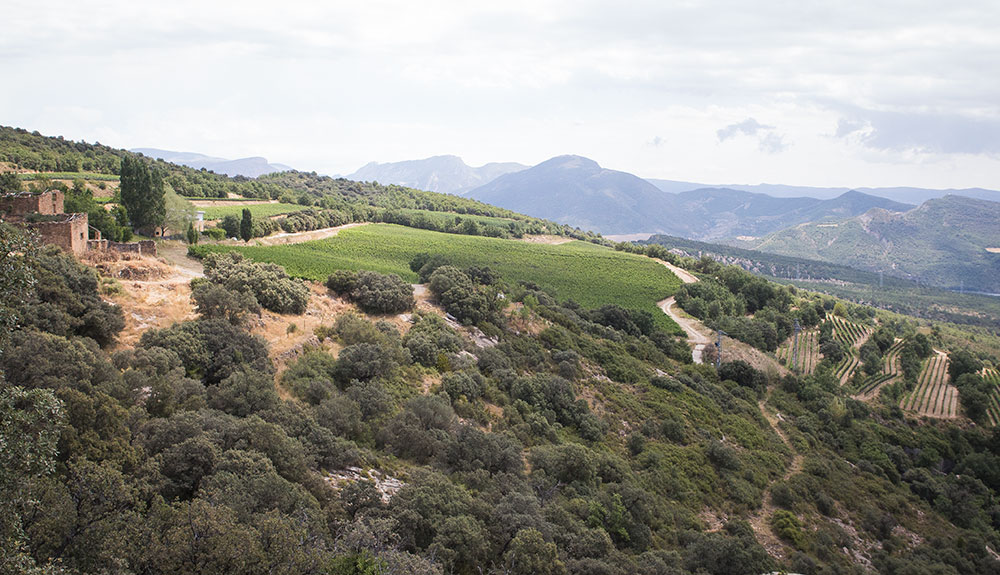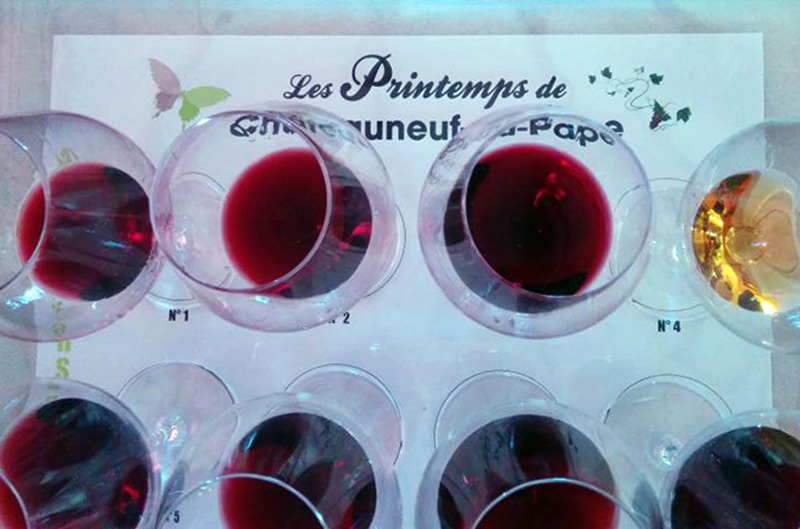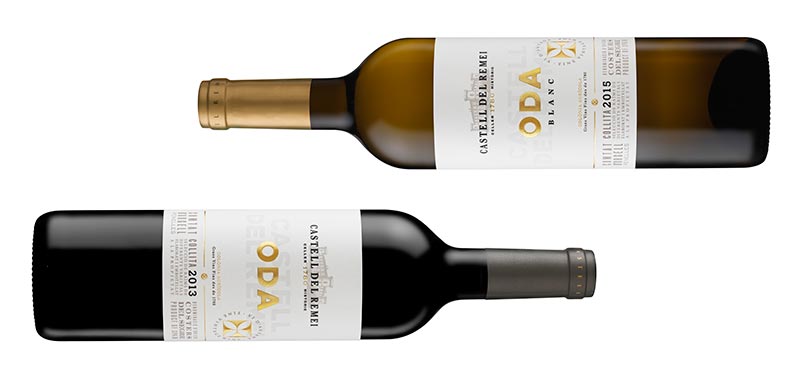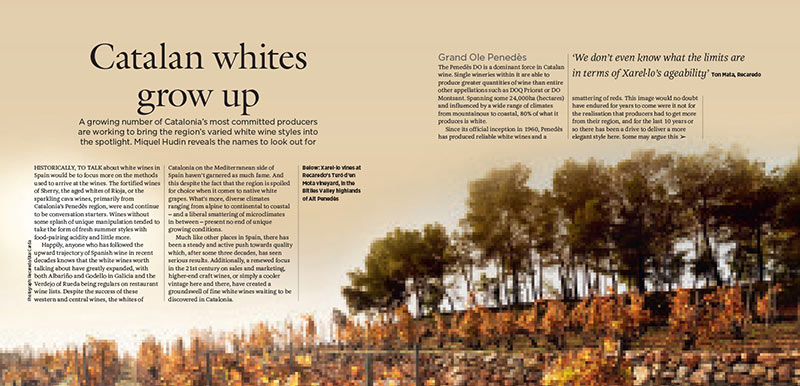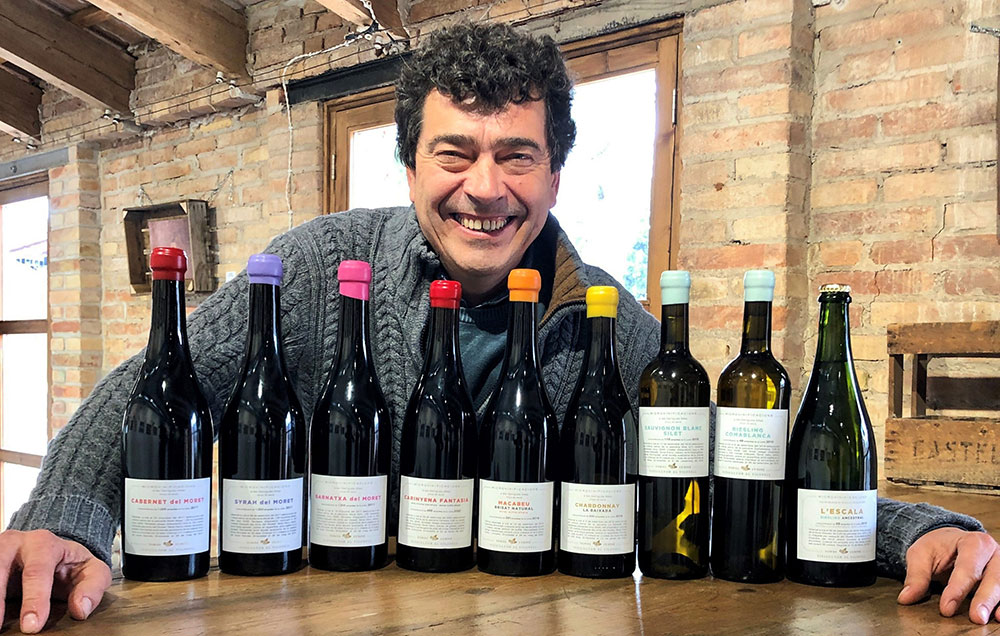This is part four a four-part series on “rebellious” winemakers in Catalunya. Please read Part One, Part Two, and Part Three
Another winemaker who constantly goes against the grain and stands in the face of adversity like a winemaking Don Quixote is Raül Bobet who makes wine up in the Pyrenees of DO Costers del Segre under the name Castell d’Encus. After years of teaching oenology and working in one of the largest cellars in Spain, he’s found his home at what seems to be the end of the earth, perched up at 850 meters. Over the course of his career, he’s shown himself to never back down from a challenge in the vineyard nor in the cellar and he seems to welcome difficulty or as he puts it, “intellectual projects”.
It needs to be kept in mind that this “project” only begins at 850 meters and most of the vineyards keep going up to 1,000 meters just as the Catalan Pyrenees truly take hold to the north of the town, Tremp. In talking with him it was hard not to be amazed at how he talks and writes on a pad, illustrating everything, “A holdover from my days of teaching.” What distracted from this was that looming just in front of the cellar on the other side of the valley of Tremp were some of the darkest storm clouds one can imagine waiting to strike; predatory in their inky hardness.
“Oh yeah, it’s going to come down hard tonight and there’s going to be hail. The conditions are perfect for it.” Raül said, noticing my preoccupation with the violent thermal mass headed our way. But, what is certain ruin in vast tracts of France is little more than a musing to Raül. Hail is not a problem. All his vineyards are netted and he’s long dealt with this, “We lose maybe five or at most 10% in a really bad year.” Despite solving one problem after another, viticulture is still not easy and one has to wonder why do it at all in such a difficult and expensive place to make wine?
“I searched long and hard for this location. I wanted limestone soils and the altitude for the acidity as it drops to 4C here at night during the summer. The solitude is blissful as well.” Raül says this in a calm, thoughtful demeanor that does little to hide a sense of complete and utter chaos he seems to juggle with ease.
He is one of the very few in Catalonia to produce delicious varietal wines of Riesling and Pinot Noir. He admits that many people locally don’t really “get” the Pinot Noir as it does very well in emulating its Burgundian origins more than its adopted existence in the Pyrenees. But beyond grapes that are generally unheard of in Spain outside of going in to Cava blends, he makes use of stone fermenting vats that he found on the property after he bought it. Dating back to the 12th century, he uses them to ferment about a third of his overall production, bringing in the native yeasts from the property and making his wines in a combination of “stone, metal, and wood” as he puts it.
In terms of the wines, acidity is the driving force in them. Catalan wines can easily lack it in some vintages due to the hot climates at lower elevations, but Raül has proven that the future does indeed seem to be up as climate change sets upon us. All of his wines, from the Riesling that’s as crisp and mineral as anything you’ll find in Mosel, to the Pinot Noir which captures the essence of Nuits St. George, to the Syrah that speaks more to Hermitage than anything else, they show this uncanny ability to have a clear parental display of their origin in France or Germany, but with this lively Catalan footprint stamped upon them.
Raül admits that sometimes things don’t work out. For instance the Albariño is proving to be too acidic and he’s going to be changing it over to Riesling. But all of this, every last moment is guided by Raül’s steady mind and a wicked desire to scratch at the surface until you can see what’s underneath, understand it, and then start scratching again.
If these winemakers are any indication, it’s not surprising that something such as Catalan Independence from Spain has yet to happen. These are not people who find their glory in an explosive revolution, but a thoughtful one. They find a steady course and direction in the same way that a stream of water will always cut its way through a stone, if given enough time. The determination is inherent and to be assumed but those who want to enjoy the fruits of this particular labor must be asked to wait while it arrives in due course.
